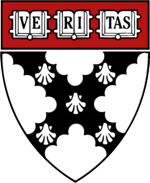Mondavi as a case study
 |
| Harvard case studies probe for the veritas behind business decisions. |
The Harvard Business School has done six case studiesMichael Porter, a Harvard professor who wrote The Competitive Advantage of Nations, a book that I read and found fascinating after being assigned it many years ago in business school. Although I wouldn’t recommend them as bedtime reading (unless you’re hoping to be lulled to sleep) I purchased them for $6.95 apiece and read each of them carefully as part of my research for The House of Mondavi.
In particular, I found the study on the Mondavi’s adventure in Chile, and its creation of the Caliterra brand with the Chadwick’s family, to be particularly helpful. My researcher and I found it fun and challenging to match the pseudonyms used in the study to the real executives I’d interviewed for my book.
This study, sold through Harvard’s Business School, was written by Brian R. Golden, Henry W. Lane and David T.A. Wesley, who were then at the Richard Ivey School of Business at the University of Western Ontario. Another came to me from a professor at U.C. Davis’s famed Department of Viticulture and Enology.
As useful as they were in illuminating some of the challenges facing the Mondavis (and, in the interest of full disclosure, I must say that these case studies carry the warning that they “are not intended to serve as endorsements, sources of primary data, or illustrations of effective or ineffective management”) I found that even more astute lessons came from my readers.
One was Jim Clark, a former McKinsey & Co consultant and retired Lucky Stores executive. Jim and I began an email conversation about what could be learned from The House of Mondavi. Eventually, we continued our discussion over a cup of coffee with Jim’s son and my Wall Street Journal colleague Rob Guth.
With Jim’s permission, I thought I’d pass along his thoughts on what can be learned from the Mondavi family’s triumphs and mistakes. The following observations are in Jim’s words:
- The Mondavi story with all its missed business opportunities really is a tragic human story for a family. They’re sure rich but there was a clear price. Unhappily, this is not an uncommon tale.
- A forceful personality and passion count for a tremendous lot … but at some point others have to join the party and their views and “the facts” must be acknowledged and responded to.
- The lure of rapid and exuberant growth often bites you in the behind. Too much, fast can backfire.
- New ventures are never as easy as they first appear … and they always cost more and take longer than anticipated.
- Greed often trumps family loyalty and even love when the stakes are big.
- Vision, passion and plain old hard work do matter and can move mountains, at least in the short term … Cesare, Robert, Michael proved that, to a point.
- It is darn hard to pass on a private company to subsequent generations for a variety of reasons that include talent, interest, hunger and passion for the business, an exponentially growing number of people involved …
- If you decide to go public as a private company, understand that the game changes, shareholders do matter, and ingrained practices related to operating expenses, capital projects, nepotism and strategy will be subject to change.
- Public Company Directors are compelled to act and will do so. The Mondavi Directors had guts and the law pushing them (not a bad thing).
- There is almost always a buyer for a good company/property when it gets in trouble … and they make something new out of it.
- Hubris eventually catches up … in business, families, governments and even nations.